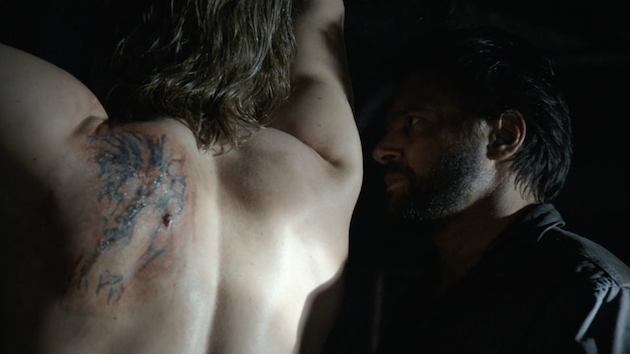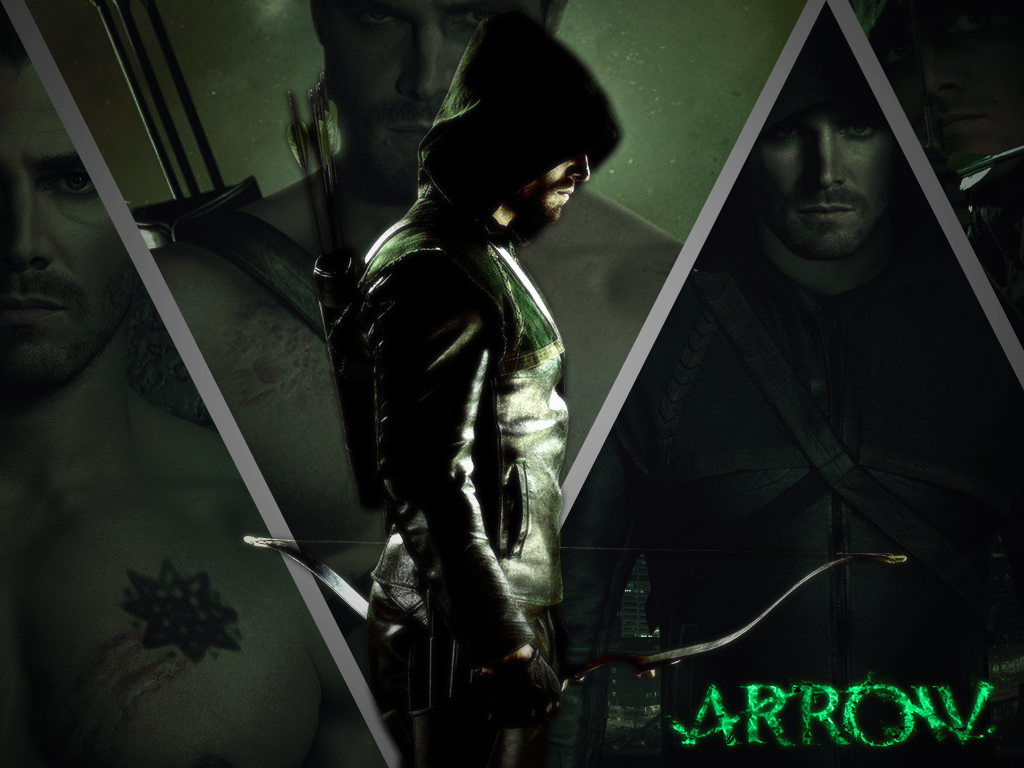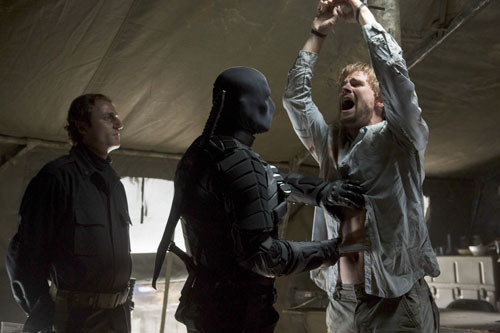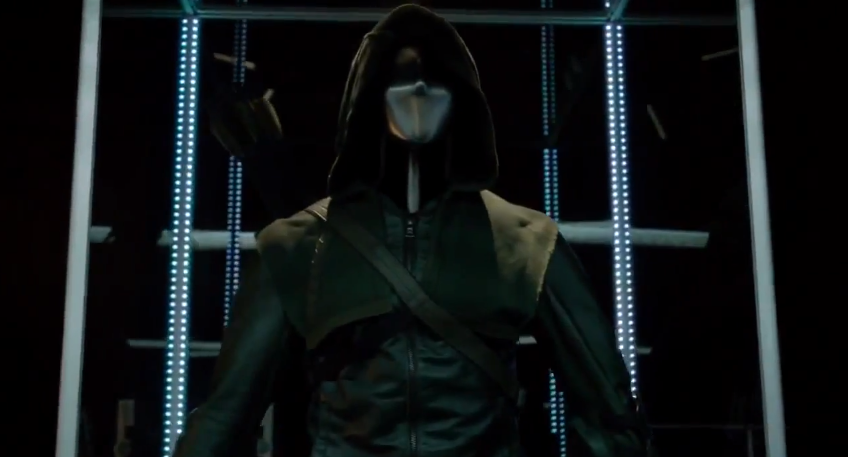I’ve received a lot of requests to do a post on CW’s Arrow. Being that it’s one of my favorite currently running shows, I’m happy to do it. Both the show and the Green Arrow comics do a wonderful job at demonstrating the psychological processes that this superhero experiences.
Background
As Oliver Queen (Green Arrow) states in the show’s opening sequence, “For five years I’ve only had one thought, one goal – survive…To live, I had make myself more than what I was, to forge myself into a weapon. I am returning not the boy who was shipwrecked but the man who will bring justice to those who have poisoned my city.” His traumatic experiences made him the Superhero he is today but he did not start out being the heroic guardian of Star(ling) City. On the contrary, Oliver starts out being the kind of man that Bruce Wayne (Batman) pretends to be. Queen is a billionaire playboy, he dates many women, he is obnoxious, irresponsible, and is no stranger to Starling City’s police department given his numerous arrests. One of these arrests was for urinating on a police officer. Yep, you read that correctly, Oliver peed on a police officer, just for funzies.
So, how does an irresponsible spoiled brat like Oliver Queen go from that to a superhero who charges himself with bringing peace and justice to Starling City? Well, as many superheroes before him, it begins with a traumatic event. Or rather, a series of traumatic events.
When his girlfriend, Laurel Lance, suggested that the two move in together, Oliver freaked out and started self-sabotaging his relationship. He, as many other people, was most likely afraid that he didn’t have it in him to make the relationship work. Rather than give it a chance, Oliver started seeing other women on the side. He got one of them pregnant, which only exacerbated his anxiety about being in a relationship and having responsibilities. The other woman Oliver was seeing, Sara Lance, Laurel’s sister, agreed to come with him and his father, Robert, on a boating trip.
Out in the sea the Queen’s Gambit (Robert Queen’s ship) was wrecked. Oliver watched in horror as Sara was taken by the angry sea. Oliver himself was able to get into a lifeboat, along with his father and one other member of the crew. In order to save his son’s life, Robert Queen kills the crew member and then himself but not before asking his son to do two things for him: right his wrongs in Starling City and most importantly, survive.
Exhausted and dehydrated, Oliver gets washed ashore the island Lian Yu (“purgatory”). There, Oliver encounters many trials and has to learn a great number of survival skills, starting with having to kill a bird in order to eat it. This was Oliver’s first time taking a life and he agonized over this decision for a long time before being able to snap the bird’s neck. After having to fight for his life against an evil dictator, Fyers, who tortured him and his new friend, Yao Fei, and later having to kill Fyers and his men, Oliver isn’t the same man that he once was. When Yao Fei’s daughter and Oliver’s new girlfriend, Shado, is kidnapped and tortured by pirates, Oliver brutally kills the pirate leader in retaliation.
Ivo, one of the surviving pirates, later kidnaps and shoots Oliver in the stomach, leaving him some medicine to extract his own bullet and care for his own wound. Oliver is then shocked to find out that Sara is still alive and is working for Ivo. Ivo at one point tortures Oliver and asks him to choose which woman should live and which should die – Sara or Shado. Oliver pleads with Ivo not to kill either one of them but kneels next to Sara. Ivo interprets this action as Oliver’s choice and kills Shado. Slade Wilson, Oliver’s other friend (who was in love with Shado), is devastated by the loss and once he finds out the circumstances under which she was killed, he blames Oliver. Under the influence of anger and a very potent drug, Mirakuru, Slade tortures Oliver, scarring and branding him, and promising him that he would make him feel despair the same way he felt it.

Oliver manages to escape and after a few years of working as a spy and assassin for ARGUS, a secret government agency, Oliver manages to make it back home to Starling City. His doctor, Dr. Lamb, tells his family, “I’d like you to prepare yourself, the Oliver you lost may not be the one they found.”
Dr. Lamb wasn’t exaggerating. Oliver is a completely different person when he returns to Starling City. He is kind and attentive to others, yet at the same time he has trouble sleeping, he is easily startled, and he won’t talk about his experiences to anyone. Images of his father’s last words before committing suicide are flashing before Oliver’s eyes, along with images of Sara being washed away to sea. Later on, Oliver is also haunted by images of Shado and the memories of his experiences on the island.
In order to honor his father’s wishes, Oliver becomes a protector, a vigilante, often taking matters into his own hands and destroying Starling City’s most notorious criminals from his father’s list. However, after Malcolm Merlyn destroys most of the Glades (an impoverished area of Starling City, known to have a lot of criminal activity) and after Merlyn’s son and Oliver’s best friend, Tommy, dies in the explosion, Oliver changes his direction and rather than destroying the criminals, he focuses on protecting the citizens of Starling City against its villains.

Oliver’s troubles were only beginning. Not long after Tommy’s death Slade Wilson arrives to Starling City, threatening Oliver and later viciously murdering his mother. Later, Oliver’s sister, Thea, while under Merlyn’s influence, murders Sara. Having buried too many loved ones and in order to protect his sister from Ra’s Al Ghul, who wanted to avenge Sara’s murder, Oliver offers himself as a sacrifice. He agrees to fight Ra’s Al Ghul to the death. Oliver loses, being stabbed through the stomach and pushed off the mountain. However, before he can die from his wounds and the bitter cold, he is rescued by Maseo, his old friend from Hong Kong.

Psychological Evaluation
What is it that drives Oliver to become the Arrow when he returns home? Why is he so cold and at times, controlling? Do his emotional scars run as deep as the physical scars on his body?
Oliver’s experiences seem to be similar to those of many military members returning from the war. I treat active duty Marines with PTSD and Oliver appears to have many of the same, or similar symptoms. In order to get diagnosed with PTSD an individual must have directly or indirectly experienced a traumatic event and must have the following symptoms for a period of 1 month or longer:
- Intrusive memories of the traumatic event. These can be in the form of nightmares, flashbacks, or intrusive thoughts. Oliver certainly seems to have flashbacks of the events on the island, as well as feelings of guilt for what happened to Shado and the accompanying thoughts that he should have done something else to protect her.
- Hypervigilance – this means that the person might be jumpy, easily startled, constantly on alert. After Oliver gets back home, he does not seem to know the meaning of the word “relax.” He is constantly on alert and ready for action.
- Avoidance – avoiding talking to people about the event, pushing people away, trying to avoid any reminders of the traumatic event. Oliver seems to have pushed everyone away, at least when he first returned to Starling. He does not want to talk about his experiences, telling Laurel, “Do you want to know why I don’t talk about what happened to me there? Because, if people knew, if you knew, you’d see me differently. And not as some vigilante guy, as damaged.”
It does seem likely that Oliver had PTSD when came back. Even though he seems to be doing better as time passes, he does appear to be struggling with guilt over the deaths of those closest to him. Many people, in particular those with military or first respondent training, as well as civilians with a strong moral code, might feel responsible for someone’s death even if there was nothing they could have done to prevent it. People who have experienced a painful loss will often ruminate over and over about a specific moment when they made a specific decision. For Oliver that “decision” was to fall next to Sara, rather than Shado, which resulted in Shado’s death. However, if he made a different decision, then Sara could have been killed instead, leaving him to feel just as guilty. Alternatively, it is possible that Shado would have been killed no matter what Oliver did. Ivo even comments that he was never going to kill Sara.
The truth is that we never know how events could have turned out if we made a different decision. Blaming ourselves for making the wrong choice without the knowledge we now have is called hindsight bias. At the time of making the decision we do not have all the facts, we do not know the future, we react the best way we know how given all the terrible circumstances. That is exactly what Oliver did. He intended to protect both women. He believes that his actions lead to Shado’s death. He also believes that he should have been able to prevent the deaths of his friends and family.
Oliver’s beliefs about his being responsible for the deaths of his loved ones are not very adaptive as they create a lot of guilt, preventing him from experiencing the more adaptive emotion – grief. Grief is a natural emotion after the loss of a loved one. Grieving, processing our losses, allows us to heal. On the other hand, guilt is a manufactured emotion. Rather than forming in direct response to an event as natural emotions do, the manufactured emotions are based on our interpretations of the event. Whereas natural emotions are helpful in recovery, manufactured emotions are more likely to cause PTSD, depression, and other mental (and even physical) disorders. The metaphor I like to use to better explain the difference between these types of emotions is that of food poisoning. Trauma is like food poisoning in a way. We need to process it to get it out of our system. If we keep suppressing it and keeping it in, the toxicity will grow, poisoning us from within.

Oliver seems to be holding on to his trauma, becoming controlling and having a hard time trusting others. He insists on doing most things himself, which is another way he maintains control. When someone is traumatized, especially in a way like Oliver has, where he was not in control of himself or his surroundings, that person is likely to become controlling in order to feel safe. For Oliver, he fears for the safety of others. In trying to protect the people he loves, he is sometimes unreasonable and stubborn. For example, he was completely against Laurel joining his crew after Sara died. Most likely this was due to his wanting to protect her and possibly because of his guilt of not being able to protect Sara.
Oliver transforms from a complete narcissist that he once was to a powerful Superhero, someone who is caring and supportive. Yet one of the people he seems to care for the least is himself. He does not appear to think that he deserves anything good in his life nor that he deserves to be treated kindly. This is another trait of PTSD. Many people who have experienced trauma suffer from low self-esteem, believing themselves to be “damaged” and “unworthy” of love. These people might unintentionally sabotage their relationships or job opportunities because they do not believe that they deserve them. Learning to be self-compassionate is one of the best ways people can learn to forgive themselves and heal. Self-compassion refers to offering the kind of care and kindness to ourselves that we would to our loved ones. Very often we are far kinder to the people in our lives than we are to ourselves. We call ourselves names, such as “idiot” or “loser” and put ourselves down. For many of us we would not treat our worst enemy the way that we treat ourselves. Self-compassion is learning how to take care of ourselves so that we have the strength and the resilience that we need in order to take care of others. Think about it, even on airplanes the attendants tell us that in the event of an emergency we are to put the mask on ourselves first before assisting others.
As hard as Oliver has been on himself, and given all that he’s been through, I would not be surprised if he begins to unravel soon. However, what’s gotten him through some of the most difficult and painful times so far, and what’s been most helpful in preventing him from having a breakdown, has been his dedication to helping others. It seems that people who follow their values, the things that are most important to them, are most likely to be mentally and physically healthy. People who stay true to their values are also more likely to keep fighting for their lives and for things that are most important to them, as Oliver did, “There were times when I wanted to die. In the end, there was something I wanted more.”
When working with patients with PTSD, I often bring up Arrow and Batman as examples of people who were able to overcome extremely painful losses and torturous experiences. I like to remind my patients that they too can be a Superhero and it all starts with one teeny tiny step. Oliver Queen did not become Green Arrow overnight. He trained and he keeps training. He looks for every opportunity he has to do good. He brings hope where there is none. He saves people who were thought to be beyond saving. He shows us that all it takes is one person to make a difference. And that to me is the most important lesson we learn from the man called The Arrow.


i LOVE arrowwww.. cant wait for the next season..
New season coming out sooooonn😌 Netflix 24/7.
I initially watched when in was on CW and have binged seasons 1-8 several times.
Such a fun show!